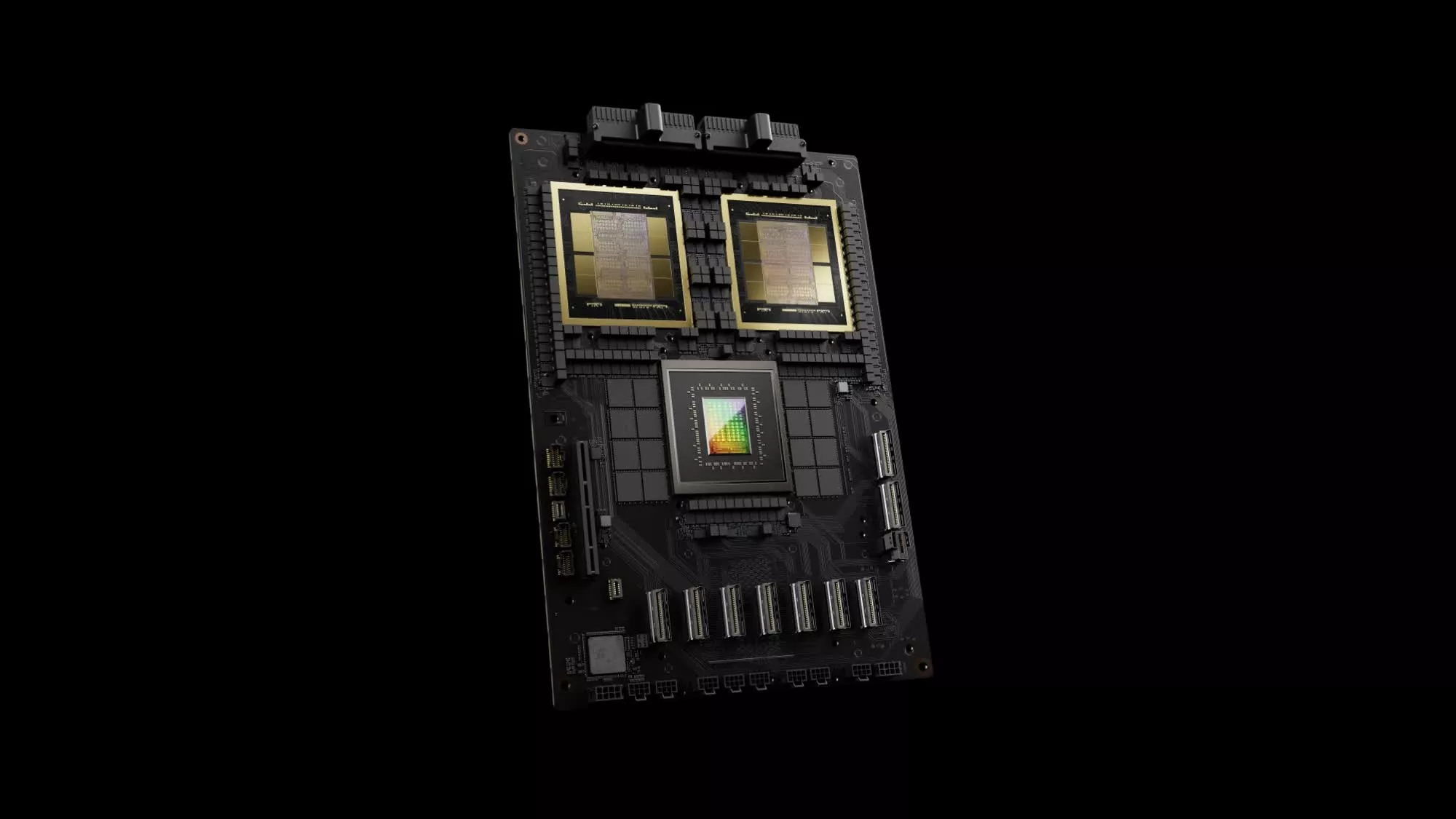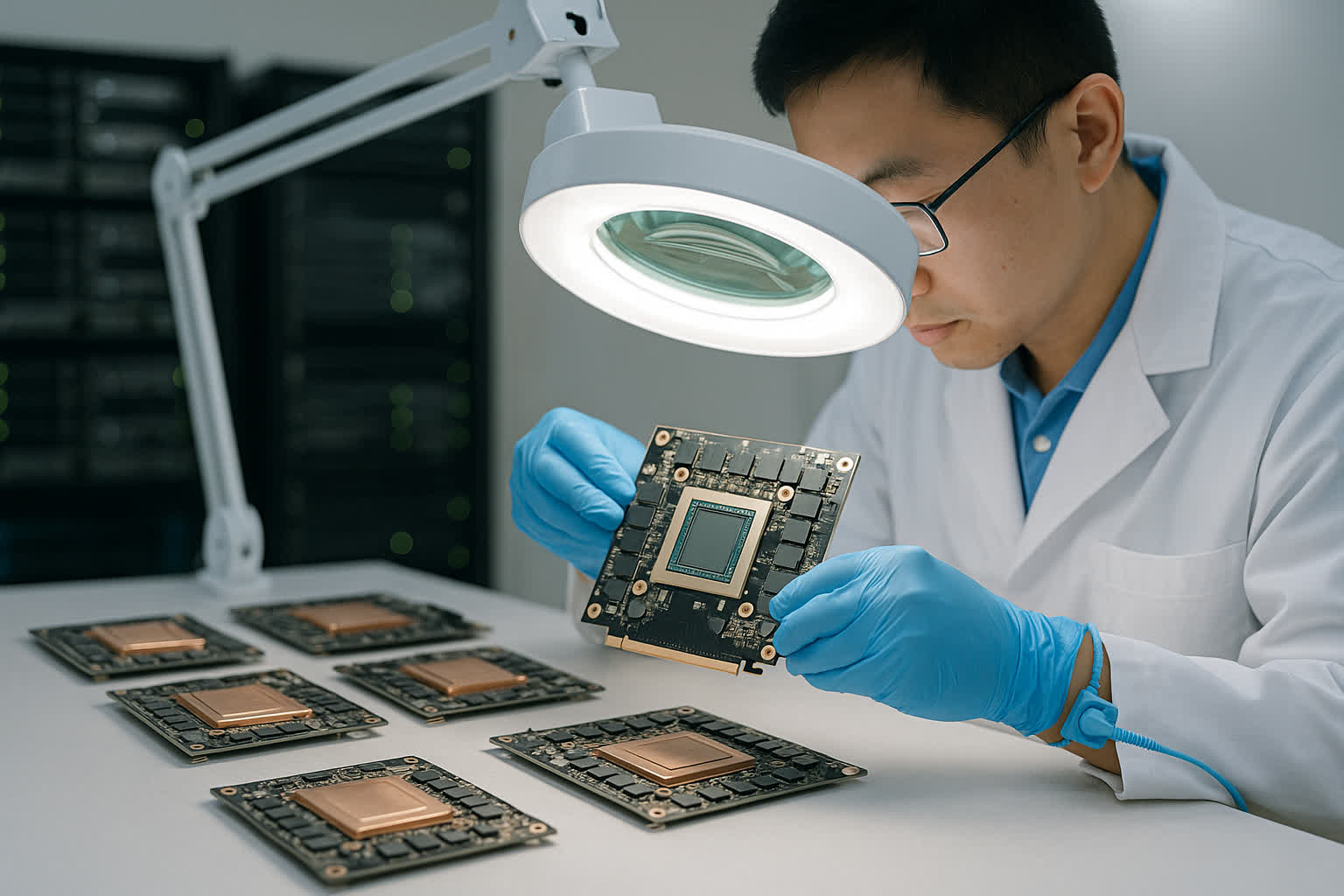In brief: There's a strange situation occurring in China: despite Nvidia's high-end AI chips being restricted from export to the country, businesses that repair these GPUs are experiencing a boom in demand. One company now handles up to 500 AI chip repairs every month.
The US has restricted the export of Nvidia's most powerful AI chips to China since 2022 over fears that they could be used for military purposes.
Although these chips aren't officially available in the Asian nation, a booming repair business has emerged. Reuters reports that one firm in the country, which began fixing gaming GPUs 15 years ago and started including AI chips in 2024, created a new company to handle all accelerator-related customer repairs, which now account for 500 repairs per month.
The company has been advertising its extensive facilities on social media. It even boasts a room that can pack 256 servers to simulate customers' data center environments.
It's a lucrative business, with the firm charging between 10,000 yuan and 20,000 yuan ($1,400 to $2,800) to fix one of these GPUs depending on the complexity of the repair.

The report highlights how another Shenzhen-based firm decided to pivot its business from GPU rentals to repairs this year. It can handle 200 Nvidia AI chip repairs each month, charging around 10% of the GPUs' original selling price per repair. The H100 goes for between $45,000 and $53,000, and the A100 between $20,000 and $30,000 on black market sites in China.
Washington first forced Nvidia to pull its A100 and H100 AI accelerators from the Chinese market in September 2022. Successive clampdowns have widened the blacklist to cover the China-specific A800 and H800, the L40/L40S, and even the RTX 4090 under an October 2023 rule. In April 2025, the new Hopper H200 and Blackwell parts – including the B100 and B200 – along with any servers or racks built around them were also restricted.
Nvidia did have something to celebrate this week when it was given permission to resume sales of its H20 data center GPUs in China. The company was forced to stop sales the chip, which is designed to stay below the US performance-density threshold, in April -- a pause that cost Nvidia a $5.5 billion write-off. Commerce Secretary Howard Lutnick said the ban was reversed because the H20 is no longer Nvidia's fastest product.
Many of these chips are smuggled into China, leading to US politicians recently calling for an effective method to track the GPUs. We've also seen stories about resellers in other countries selling servers to Chinese firms that are filled with Nvidia AI GPUs.
China sees surge in Nvidia AI chip repair businesses despite export bans
